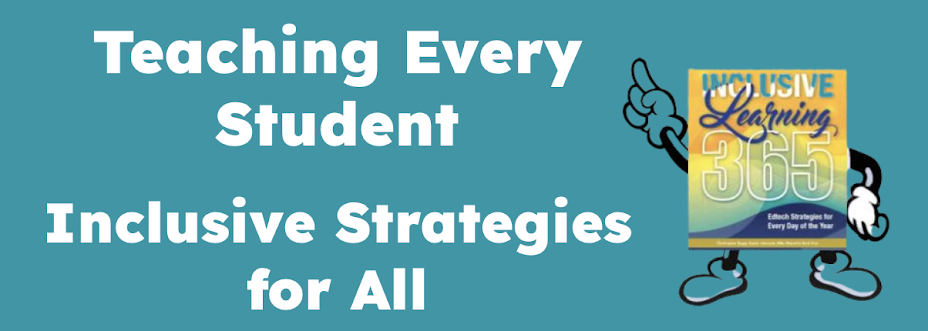
Independence.
Too often, independence is an elusive concept in our schools.
Why?
Because we believe we are accomplishing more when we provide students on IEPs with one-to-one adult supports who scribe for students and read the grade level material when the student is unable. What results? Unfortunately, learned passivity and DEPENDENCE.
Is this FAPE, Free, Appropriate Education? If a student doesn't get it when the adult reads the material to him, how likely are they to ask the adult to repeat it? How appropriate is it when a student never has the opportunity to produce written work independently?
How can we overcome this? A paradigm shift in how we view disability and accommodation must occur:
1. It is time to end the remediation vs. compensation battle and declare a truce. The emphasis on remediation at the expense of accommodation must stop. Instead, remediation MUST be COMBINED with compensation to accommodate for learning challenges if our students are to feel a sense of competence, mastery and independence.Hand your students the brass ring of independence. There is no better time than today.
2. Recognize the inherent disability that exists in the curriculum and instruction when students with learning struggles can not access the curriculum using traditional methods. Although no research exists that supports the superiority of textbooks, lecture based and paper based methods, the majority of classroom instruction depends upon these methods of instruction. Time to stop blaming the student when our methods disable their performance and participation.
3. Recognize that there is no better time to be an educator. Access to the tools and strategies are readily available as never before. Tools exist that remove the obstacles to learning, many are free, others are commercially available.
4. Understand that students learn differently, that a one-size-fits all approach does NOT work. Instead, incorporate Universal Design for Learning principles. UDL which proproses that learning occurs when there are multiple methods of engagement, representation and expression. Excellent resources are available at cast.org including the UDL Curriculum Self-Check that helps you apply principles that engage and support ALL learners.

As a future educator I can tell you these are some of the things we are talking about in classes that I have taken.
ReplyDeletebravo Karen! fabulous summary... and I want to know where Adam (above) is going to school. I too rarely see these conversations.
ReplyDelete- Ira Socol
Karen, I started to post a comment but realized that I needed to explore my thoughts. So I responded to your post on my blog:
ReplyDeletehttp://kchichester.edublogs.org
Thanks for your insights and the UDL links.
Sign me,
Another Karen involved teaching all students.
I am striving to become a special educator teacher. Many of my classes that I have taken so far dealt with how to allow all students to learn. We have gone over many different ways to get students involved and understand the material that would be presented to them.
ReplyDeleteWell said, Karen. Independence must be the ultimate goal. Too often we see children with learned helplessness who have stopped trying altogether. We must keep working to show these students how to be successful on their own!
ReplyDeleteKaren, Wonderful points. I stand behind all of them. We need to get these statements into the hands of our educators within sped and in the general ed classrooms.
ReplyDeleteThanks for boiling it down to such succinct phrases for us.
Adam and Ashley,
ReplyDeleteIt is exciting to read that your education courses incorporate these concepts. As the other comments suggest, this is not a pervasive view and we need to constantly advocate for our students who need specialized instruction.
Thank you all for your thoughts. Please share this post with your colleagues. My experience is that many educators have not assimilated these ideas, yet.
Karen,
ReplyDeleteI think what you write about here is a perfect example of not that we need to "teach" teachers to do these things, but hire people who are "independent" learners and thinkers. Trying to get a teacher who is dependent of teacher manuals, curriculum guides, etc, to switch to methods that would make their kids more independent would still result in a teacher who is simply following steps and not thinking for themselves. Sometimes the most important skills we need kids to have shouldn't be taught, but modeled.
Excellent thoughts, as a special education teacher, I believe our focus should be independence. Now more than ever our students are changing and we need to change our methods to accommodate their needs.
ReplyDelete